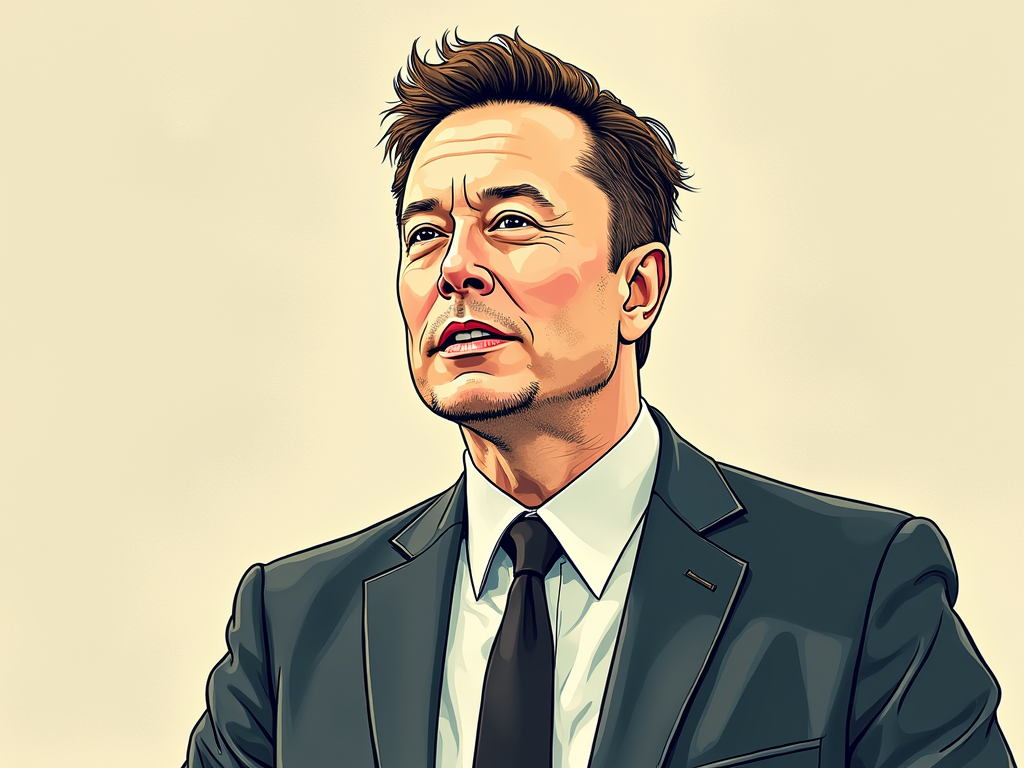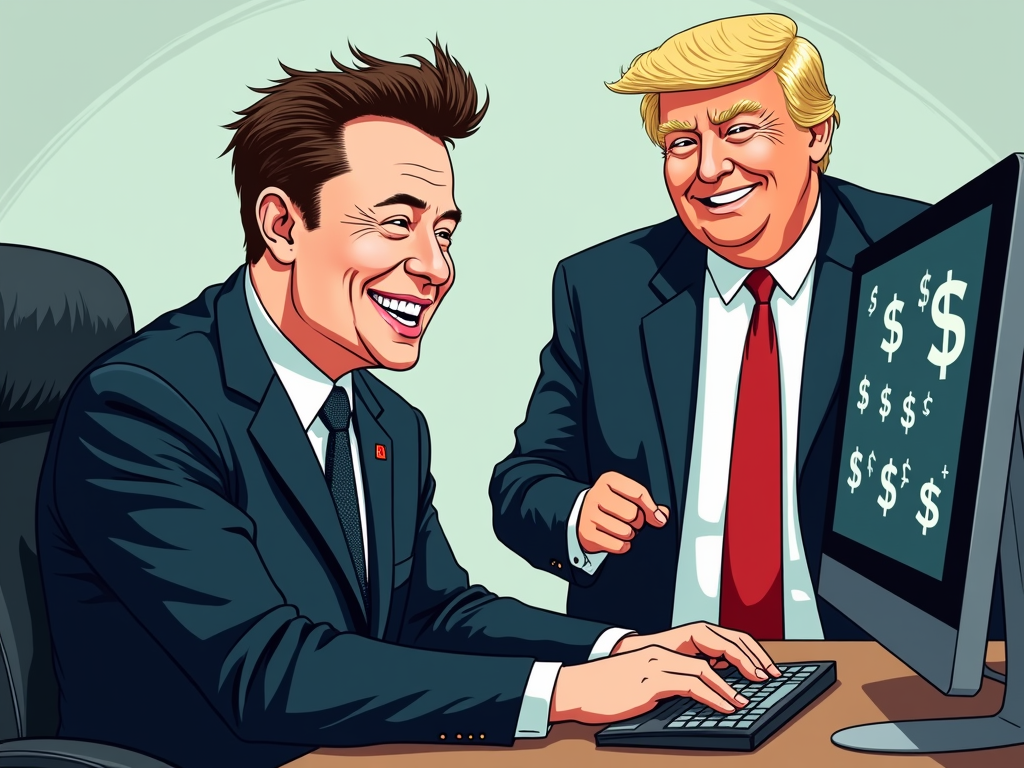Elon Musk’s recent statements about Social Security have sparked intense debate across America. The world’s richest man, now heading the Department of Government Efficiency (DOGE) under the Trump administration, has called Social Security “the biggest Ponzi scheme of all time” – but does this signal plans for privatization? Let’s dive into what’s actually happening.
Musk’s Controversial Comments Raise Eyebrows

When Elon Musk appeared on Joe Rogan’s podcast in early March, his characterization of Social Security as a “Ponzi scheme” immediately set off alarm bells for many policy experts. This isn’t just colorful language – it’s rhetoric historically used by those advocating for privatizing the nearly 90-year-old program.
During a follow-up interview with Fox Business host Larry Kudlow on March 10, Musk doubled down by claiming there could be “$600 to $700 billion” in annual wasteful spending across major entitlement programs, with Social Security being “the big one to eliminate.”
These statements alone might be dismissed as typical Musk provocation, but his actions tell a more concerning story.
DOGE’s Growing Influence Within Social Security
Here’s where things get interesting. Musk hasn’t just talked about Social Security – he’s positioned his people within the agency that runs it.
Antonio Gracias, one of Musk’s closest confidants who previously served on the boards of both Tesla and SpaceX, has taken up a new position at the Social Security Administration. This strategic placement suggests Musk is serious about reshaping how the agency operates.
Under DOGE’s watchful eye, the SSA has already announced plans to reduce its workforce, which is currently at a 50-year low. Multiple field offices across the country are slated for closure, and the administration briefly floated the idea of dramatically reducing customer service on the agency’s 1-800 phone line before backing down after public outcry.
“This Isn’t About Reform” – Insiders Sound the Alarm
Perhaps most troubling is what’s happening behind the scenes. Tiffany Flick, a former SSA official, resigned in protest after DOGE demanded access to secure databases without following proper security protocols.
In a court affidavit, Flick didn’t mince words: “This isn’t about reform or fraud prevention. It’s about dismantling the SSA’s ability to fulfill its mission.”
The situation became so concerning that multiple organizations – including AFSCME, the Alliance for Retired Americans, and the American Federation of Teachers – filed for emergency relief to block DOGE’s access to the agency’s systems.
What’s Behind the “Fraud” Claims?
Musk and the administration have consistently framed their interventions as targeting “waste and fraud,” not cutting benefits. But do their claims hold water?
The Social Security Inspector General reported approximately $71.7 billion in improper payments from 2015 to 2022 – less than 1% of total benefits disbursed during that period. This figure falls dramatically short of Musk’s allegations.
Even more questionable is Musk’s specific claim about “20 million individuals who are definitely deceased yet listed as alive in the Social Security system.” SSA Acting Commissioner Lee Dudek has publicly disputed assertions of widespread payments to deceased individuals.
“The President Wanted It and I Did It”
In a revealing moment, SSA Acting Commissioner Leland Dudek reportedly told advocates, “I’ve had to make some tough choices, choices I didn’t agree with, but the president wanted it and I did it.”
One such choice appears to be reverting to a harsher policy on overpayments. The SSA is now withholding 100% of beneficiaries’ monthly benefits as a default until overpayments are fully repaid – a shift from the previous administration’s more lenient approach.
Critics have called this policy “petty and cruel,” especially considering that many overpayments result from errors on the agency’s part rather than recipient fraud.
What Politicians Are Saying
Democrats have been quick to sound the alarm. Senator Bernie Sanders warned that Musk’s call for massive cuts represents “a prelude not only to cutting benefits, but to privatizing Social Security itself.”
House Ways and Means Social Security Subcommittee Ranking Member John B. Larson was even more direct: “Trump and Musk are after it so they can privatize the system.” Larson emphasized that Social Security represents earned benefits that workers have paid into, not “entitlements” as Musk has characterized them.
The Trump administration, for its part, has issued strong denials. A White House fact check published on March 11 stated: “The Trump Administration will not cut Social Security, Medicare, or Medicaid benefits. President Trump himself has said it (over and over and over again).”
Reading Between the Lines
Princeton University history professor Julian E. Zelizer puts it bluntly: “Given the track record of Trump 2.0 thus far, there is no reason to believe that Musk is not serious about putting Social Security in the administration’s crosshairs.”
While no explicit privatization plan has been announced, the combination of rhetoric and actions has prompted legitimate concerns about the future of a program that serves approximately 70 million Americans.
What This Means For You
If you’re among the millions of Americans who depend on Social Security, these developments deserve your attention. While the administration insists benefits won’t be cut, the operational changes already underway could affect how easily you can access services.
As government offices close and staff numbers dwindle, those needing assistance with Social Security matters may face longer wait times and more challenges navigating the system.
The Bottom Line
Is Elon Musk actively trying to privatize Social Security? There’s no smoking gun proving such a plan exists. But his rhetoric about the program, the strategic placement of allies within the SSA, and the operational changes already underway have justifiably raised concerns about the long-term fate of America’s most important social insurance program.
As this situation continues to develop, staying informed and engaged with policy discussions around Social Security has never been more important – especially for the millions of Americans whose financial security depends on the program’s continued stability.
Leave us a comment below and let us know what you think is going on!

